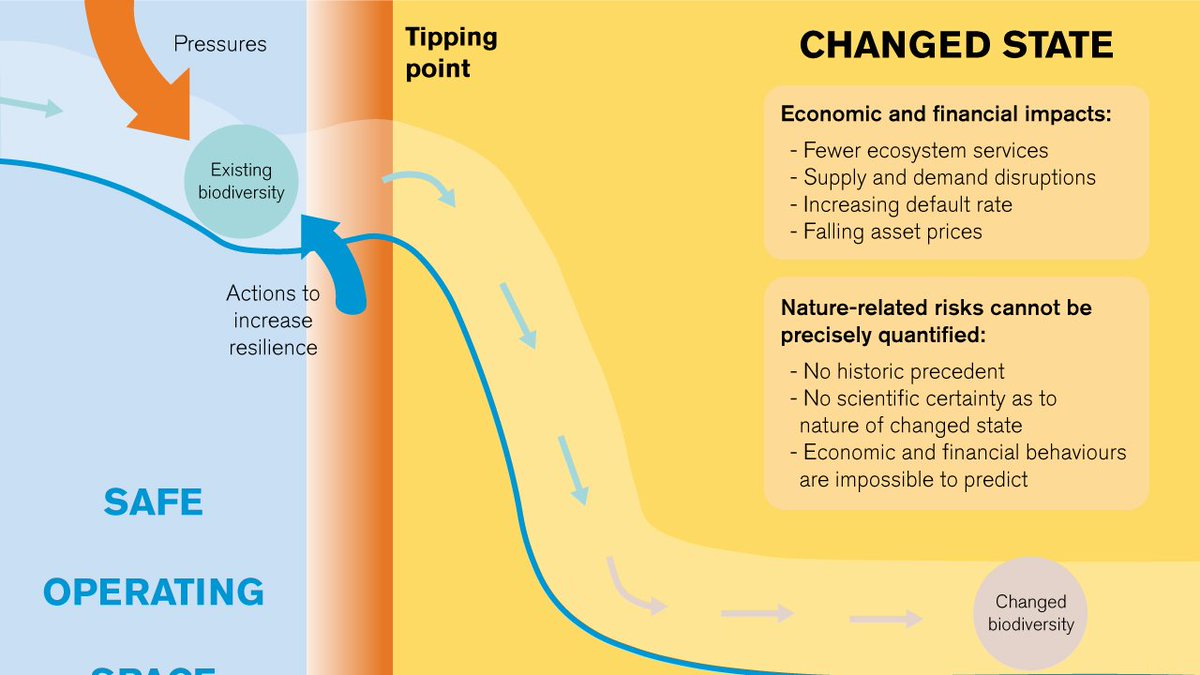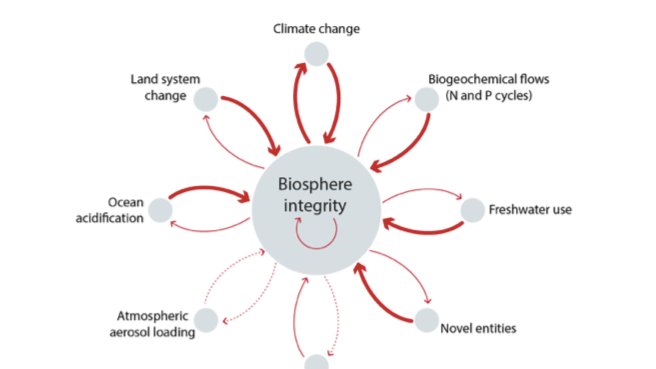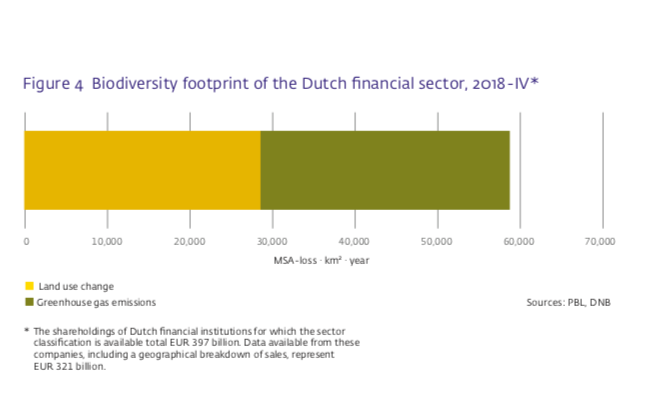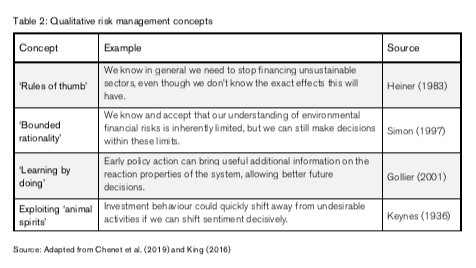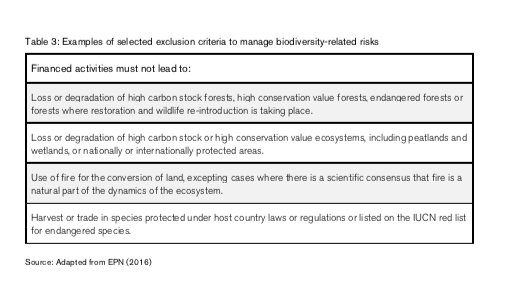 New @IIPP_UCL working paper out on nature-related Financial Risks
New @IIPP_UCL working paper out on nature-related Financial Risks 
We @jryancollins & Hugues Chenet argue that central banks & financial supervisors must take precautionary action to manage environmental risks beyond climate change.
https://www.ucl.ac.uk/bartlett/public-purpose/publications/2020/aug/managing-nature-related-financial-risks
[THREAD]
Nature loss encompasses a highly complex set of phenomena:
 multiple interconnected threats
multiple interconnected threats
 unprecedented irreversible impacts
unprecedented irreversible impacts
 complex system dynamics, e.g. tipping points
complex system dynamics, e.g. tipping points
 subject to 'radical uncertainty'
subject to 'radical uncertainty'
 huge challenges for financial modelling
huge challenges for financial modelling
 multiple interconnected threats
multiple interconnected threats unprecedented irreversible impacts
unprecedented irreversible impacts complex system dynamics, e.g. tipping points
complex system dynamics, e.g. tipping points subject to 'radical uncertainty'
subject to 'radical uncertainty' huge challenges for financial modelling
huge challenges for financial modelling
It is not clear that methodologies for information disclosure & quantitative risk estimates (e.g. Taskforce for Nature-related Financial Disclosures) can be sufficiently advanced in the time remaining for transformative action. https://www.theguardian.com/environment/2020/jun/01/sixth-mass-extinction-of-wildlife-accelerating-scientists-warn
Nature-related impacts are already occurring in the short-term, and well within financial and supervisory time horizons.
e.g. pollinator losses limiting crop production
 https://www.weforum.org/agenda/2020/08/loss-of-bees-threatens-us-crop-yields/
https://www.weforum.org/agenda/2020/08/loss-of-bees-threatens-us-crop-yields/
e.g. pollinator losses limiting crop production

 https://www.weforum.org/agenda/2020/08/loss-of-bees-threatens-us-crop-yields/
https://www.weforum.org/agenda/2020/08/loss-of-bees-threatens-us-crop-yields/
The climate crisis and broader environmental breakdown are intimately interconnected. Attempts to manage climate risk will be *underestimating* true impacts unless nature-related risk is also taken into account.
 source: Steffen et al. 2015 https://science.sciencemag.org/content/347/6223/1259855
source: Steffen et al. 2015 https://science.sciencemag.org/content/347/6223/1259855
 source: Steffen et al. 2015 https://science.sciencemag.org/content/347/6223/1259855
source: Steffen et al. 2015 https://science.sciencemag.org/content/347/6223/1259855
The financial sector is not only *exposed* to nature risks, but also *contributing* to them, through its lending, investing & advisory activities.
@DNB_NL estimate Dutch FIs responsible for nature loss equal to an area 1.7x larger than the Netherlands.
https://www.dnb.nl/en/news/news-and-archive/dnbulletin-2020/dnb389169.jsp
@DNB_NL estimate Dutch FIs responsible for nature loss equal to an area 1.7x larger than the Netherlands.
https://www.dnb.nl/en/news/news-and-archive/dnbulletin-2020/dnb389169.jsp
The failure of financial actors to cease facilitating harmful business practices risks ‘locking in’ future impacts.
Nature-related risks, therefore, may emerge endogenously from behaviours within the financial system itself.
@Global_Witness https://www.globalwitness.org/en/campaigns/forests/money-to-burn-how-iconic-banks-and-investors-fund-the-destruction-of-the-worlds-largest-rainforests/
Nature-related risks, therefore, may emerge endogenously from behaviours within the financial system itself.
@Global_Witness https://www.globalwitness.org/en/campaigns/forests/money-to-burn-how-iconic-banks-and-investors-fund-the-destruction-of-the-worlds-largest-rainforests/
We argue for financial authorities to use a precautionary approach to managing nature-related risks:
 Markets poorly manage systemic, endogenous risks
Markets poorly manage systemic, endogenous risks
 Precise quantitative estimates may not be feasible...
Precise quantitative estimates may not be feasible...
 ... and waiting for them delays onset of urgent action
... and waiting for them delays onset of urgent action
Instead...
 Markets poorly manage systemic, endogenous risks
Markets poorly manage systemic, endogenous risks Precise quantitative estimates may not be feasible...
Precise quantitative estimates may not be feasible... ... and waiting for them delays onset of urgent action
... and waiting for them delays onset of urgent actionInstead...
We suggest that central banks & supervisors determine – with govts – clearly harmful activities that cannot be financed in order to avoid critical natural tipping points.
Such an exclusionary list
exclusionary list can then determine eligibility criteria within monetary & prudential toolkits.
can then determine eligibility criteria within monetary & prudential toolkits.
Such an
 exclusionary list
exclusionary list can then determine eligibility criteria within monetary & prudential toolkits.
can then determine eligibility criteria within monetary & prudential toolkits.
This requires financial authorities to embrace more of a 'market-shaping' role.
Central banks are not exogenous to the system. They are active market participants whose decisions influence market outcomes. A lack of intervention is itself a policy choice that carries risks.
Central banks are not exogenous to the system. They are active market participants whose decisions influence market outcomes. A lack of intervention is itself a policy choice that carries risks.
The full report can be found here: https://www.ucl.ac.uk/bartlett/public-purpose/publications/2020/aug/managing-nature-related-financial-risks
[END]
[END]

 Read on Twitter
Read on Twitter![New @IIPP_UCL working paper out on nature-related Financial Risks We @jryancollins & Hugues Chenet argue that central banks & financial supervisors must take precautionary action to manage environmental risks beyond climate change. https://www.ucl.ac.uk/bartlett/public-purpose/publications/2020/aug/managing-nature-related-financial-risks[THREAD] New @IIPP_UCL working paper out on nature-related Financial Risks We @jryancollins & Hugues Chenet argue that central banks & financial supervisors must take precautionary action to manage environmental risks beyond climate change. https://www.ucl.ac.uk/bartlett/public-purpose/publications/2020/aug/managing-nature-related-financial-risks[THREAD]](https://pbs.twimg.com/media/EfyvXhhXoAA6ULm.png)
